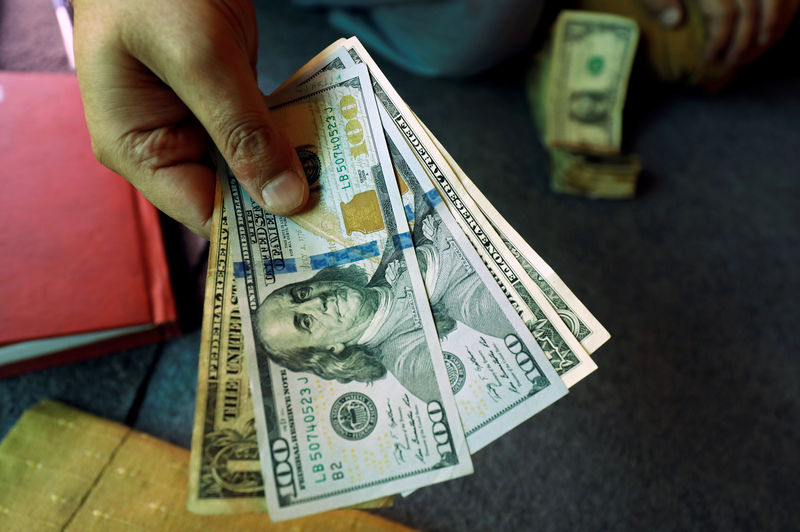 © Reuters.
© Reuters.
By Peter Nurse
Investing.com - The U.S. dollar weakened in early European trade Wednesday, handing back overnight gains as Western officials downplayed the significance of a fatal missile strike on a Polish village, seeking not to escalate tensions with Russia.
At 02:55 ET (07:55 GMT), the Dollar Index, which tracks the greenback against a basket of six other currencies, fell 0.3% to 106.013, having climbed as high as 106.76 earlier Wednesday.
The safe-haven dollar had seen a bid early Wednesday after news broke that a Russian-made rocket had killed two in a village in Poland, a NATO member, close to the Ukraine border, raising concerns of an escalation in the war in Ukraine.
However, Moscow denied responsibility for the strike, and U.S. President Joe Biden said early information suggested the weapon was probably not fired by Russia, although the investigation was ongoing.
The dollar had seen selling on Tuesday, following the release of a weaker-than-expected rise in producer prices, which added to the cool consumer inflation data last week that hinted the Federal Reserve's aggressive rate-hiking run may be near its end.
"We think it's too early to expect sustained weakness in the U.S. dollar, and we maintain our view of a USD peak by the end of 1Q23," said analysts at UBS, in a note.
"We believe the Fed will want to see several consecutive months of tamer inflation before considering a pivot to a more dovish stance. In addition, the Fed needs to see signs of a cooling labor market. Yet recent data still points to strong job growth, low unemployment, and fast-rising wages."
Elsewhere, GBP/USD traded flat at 1.1858, just below its strongest level in three months, after data showed that U.K. inflation rose to a new multi-decade high in October, fueled by rising prices for food and energy.
The consumer price index rose by 2.0% from September alone, and was up 11.1% from a year earlier, above the forecasts of a monthly gain of 1.7% and an annual rate of 10.7%.
These figures point to further interest rate hikes by the Bank of England, and will also disappoint the U.K. government as it gets ready to announce new tax and spending plans for the coming years on Thursday.
EUR/USD rose 0.4% to 1.0389, near a three-month high, while the risk-sensitive AUD/USD rose 0.1% to 0.6763, staying up despite the raised geopolitical tensions.
USD/JPY rose 0.2% to 139.62, while USD/CNY rose 0.5% to 7.0770, with the yuan hit by data showing Chinese house prices sank to a seven-year low in October.
This followed dismal readings on industrial production and retail sales earlier this week, suggesting that the second largest economy in the world is under duress.

